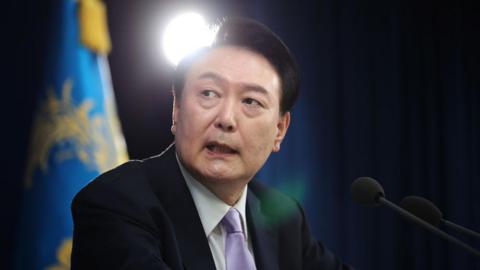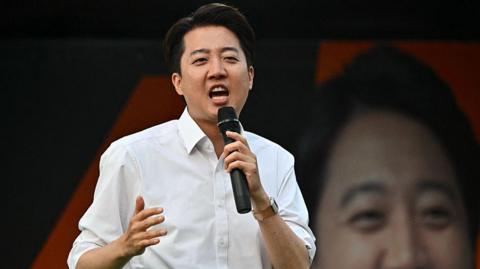One name in particular has emerged: Lee Jun Seok, who also ran for president, but dropped out earlier on Tuesday, when exit polls suggested he was trailing too far behind, with just 7.7% of the votes.
Still, he has been especially popular with many young men for his anti-feminist views, which has reminded some of Yoon, under whom equality for women became a polarising subject.
Young men in their 30s came out in higher numbers than usual to vote this time, drawn in part by candidates like Lee Jun-seok. Those wanting to hold the PPP-led government accountable, and others wanting to ensure Lee Jae-myung's presidency was dashed, led to this year's voter turnout reaching 79.4% - the highest since 1997.
However, it is not just healing these divides at home that will keep Lee busy in the immediate future. He also faces urgent challenges abroad, such as navigating the US-Korea alliance under the new Trump administration.
"South Korea's pressing domestic challenges are increasingly intertwined with global dynamics," Mr Park said, adding that it has implications for the country's economy and defence, given that the US is both a crucial trading partner and security ally.
A trade deal with the US is top of the agenda, he said, with sluggish demand and slowing growth already hurting the economy.
Lee - a seasoned politician - goes into office knowing all of this, and in the early hours made a promise to South Korea's voters.
"I will do my utmost to fulfil the great responsibility and mission entrusted to me, so as not to disappoint the expectations of our people," Lee told reporters.


